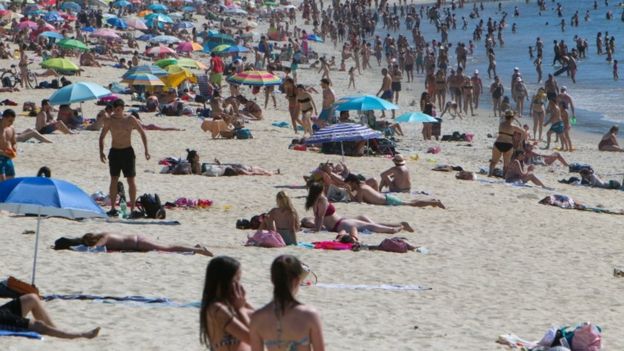Source: BBC
May 27 2020
A major recovery fund for Europe worth between €500bn ($545bn; £448bn) and €1 trillion will be proposed by European Commission President Ursula von der Leyen on Wednesday.
Economies across the 27-nation EU bloc have been ravaged by the Covid-19 pandemic, but several southern states had big debts even before the crisis.
Germany has backed calls for the money to be raised on the capital markets.
However, several "frugal" states object to taking on debt for other countries.
Austria, the Netherlands, Denmark and Sweden reject the idea of cash handouts to relatively poorer countries rather than low-interest loans.
Without the backing of all 27 governments in the EU, the recovery plan cannot go ahead.
What will the Commission leader say?
Mrs von der Leyen will give details both of the recovery "instrument" and how it will be integrated into the EU's wider 2021-27 budget. The fund is likely to be paid out in a mixture of grants and loans, with particular emphasis on both investment and reform.
She will need to address the concerns of the "frugal four" as well as others, and is expected to seek a way of avoiding member states having to pay more money to cover the recovery fund.
That means that the money will have to be raised on financial markets, but it would still have to be paid back, perhaps over 30 years.
So the question is how and over what period the money would be repaid. Reports suggest some EU-wide taxes may be imposed on the turnover of multinationals, as well as on plastics and CO2 emissions.

Coronavirus leads to food industry crisis in Europe
Commissioner Maros Sefcovic says recovery has to be based on green and digital policies as well as "increased resilience" and lessons learned from the Covid-19 crisis.
The budget will be "equipped with increased firepower to be able to generate massive investment at the scale and speed needed to kick-start all our economies", he says.
The European Central Bank has played a key role in helping eurozone countries emerge from the debt crisis with its stimulus programme of bond-buying. But concerns about the ECB programme's future were raised earlier this month when Germany's top court ruled that it violated the German constitution.
The UK has left the EU so is unlikely to have any involvement in the fund as it stands.
What do the member states say?
Dutch Prime Minister Mark Rutte summed up the feelings of the wealthier states of Northern Europe on Tuesday. A fund was necessary to stimulate recovery, he said, but "we believe this should consist of loans, without any mutualisation of debts".

This beach at Vigo in northern Spain was crowded with tourists on Tuesday as Spain's economy began to reopen
Spain and Italy have seen the highest number of deaths in the EU during the coronavirus crisis and, along with Greece and Portugal are reliant on tourism for a large amount of their economic output.
According to Italian media, Mr Rutte discussed the fund with Prime Minister Giuseppe Conte on Tuesday.
Italian Economy Minister Roberto Gualtieri said he was expecting an "ambitious proposal" that Italy had fought for and which "initially saw us isolated and then saw the consensus of many countries".



No comments:
Post a Comment